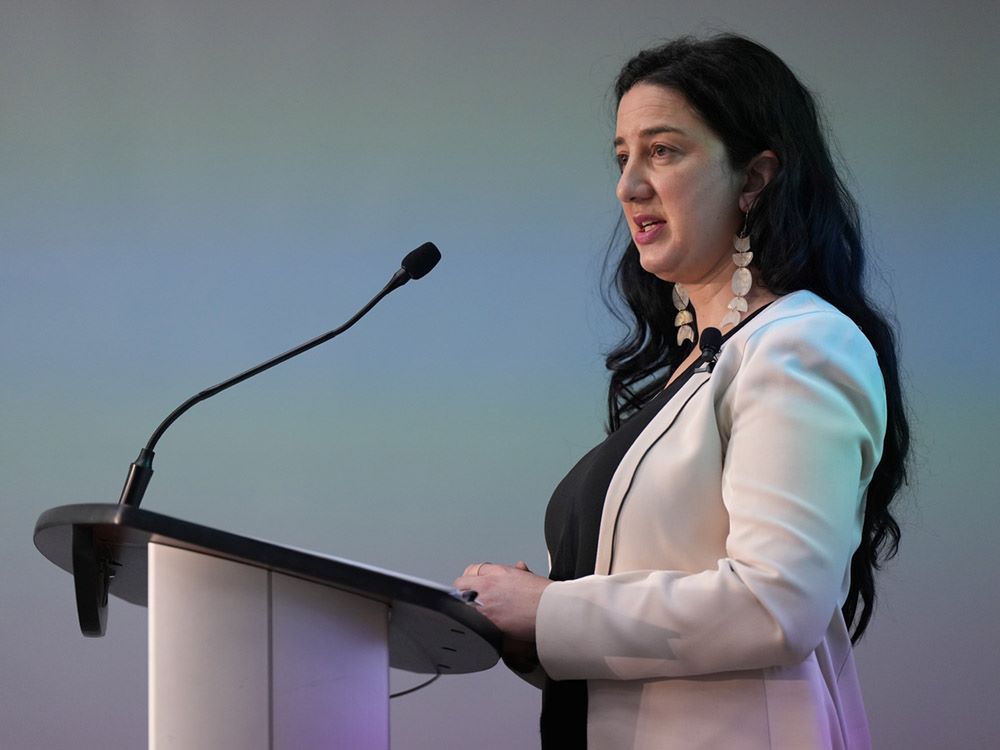A B.C. law meant to help vulnerable adults in emergency situations may have been unintentionally facilitating unlawful detentions for the past two decades.
To figure out who is being detained and for how long, B.C. Human Rights Commissioner Kasari Govender on Nov. 30 ordered all B.C. health authorities, Providence Health Care and Community Living BC to release data on detentions authorized under the Adult Guardianship Act. The Ministry of Attorney General, the Ministry of Health and the Public Guardian and Trustee have also been asked to provide information.
We know detentions are happening, but “there is no publicly available information on how often detentions take place, how long people have been detained or the demographics of who is being detained,” Govender told The Tyee.
That’s a problem, because there’s also no timeline or procedural safeguards built into the act because it’s not explicitly designed for detention, she added.
Section 59 of the act gives power to certain agencies to provide emergency assistance to adults who appear abused or neglected and seem unable to give or refuse consent when offered help. This could include, for example, adults with developmental disabilities or seniors with dementia.
This has led to the detention of several people over the years, with one Indigenous woman being held against her will from October 2016 to September 2017.
Interviews collected by the non-profit Health Justice document the experiences of three other adults who were detained under the act, one family member who supported an adult detained under the act, and two clinicians who saw people be detained under the act.
A class-action lawsuit has also been launched against B.C.’s five health agencies, Providence Health Care Society and Community Living BC. The lawsuit alleges individuals were detained under the act “illegally” and that “these detentions are a violation of the rights of the individual and go against the purpose of the act, which is to protect the well-being of adults.”
The Tyee reached out to Klein Lawyers to ask how many people have signed on to the class action so far but did not hear back by press time.
It’s unusual for a system to be able to detain people without procedural safeguards, Govender said. Compare this to the criminal justice system where people have a right to a lawyer and a right to remain silent — “but the mental health system doesn’t have this built in the same way.”
Protection against arbitrary detention is a human right, she added.
Govender said she’s hoping to be able to collect data that can show if certain communities or demographics are overrepresented in these detentions.
“Equality questions are important when we’re talking about possible detention,” she said.
“Detention disproportionately impacts Indigenous peoples in, for example, the correction system, so it seems like an important question to be asking in this context as well.”
Part 3 of the Adult Guardianship Act gives designated agencies the power to respond when they hear about an adult being neglected or abused, said Laura Johnston, legal director at Health Justice.
This allows health authorities and Community Living BC to investigate, respond and offer services to help someone address their immediate situation, she said. The adult then has the right to accept or refuse the help.
Johnston said if someone says “no,” that should be respected, but if the agency thinks the adult doesn’t understand what it means to say no, then the agency can go to court and ask for a judge to assess the adult’s ability to give or refuse consent.
There are safeguards built into the process because the adult will be able to advocate for themselves or hire representation in court, she added.
However, Johnston continued, in emergency situations the agency doesn’t need to go to court to ask a judge to assess the adult.
“Detention is a really serious intrusion on an adult’s rights, and we don’t want to take those steps lightly,” Johnston said.
But there haven’t been a lot of court judgments published recently about whether or not an adult is able to refuse help under the Adult Guardianship Act.
Johnston said this could be interpreted in two different ways: either everyone offered help is accepting it, or health authorities are using emergency provisions to detain people rather than going through a lengthier court process.
In the case where the Indigenous woman was detained for a year, the court ruled that the emergency powers were misused because an emergency can’t last for an entire year.
“We know one adult was detained by a framework meant to protect her. Are there other adults who have been detained, was it lawful and were their human rights protected?” she asked.
That’s exactly what Govender said she hopes to find out.
Govender said she’s hoping to get the data she requested in January 2024. It’s possible there will still be gaps in data because not every health authority collects data the same way, she added.
“These decisions are made quickly to protect someone in emergency situations,” she said. “They’re made by health-care workers or social workers. We’re trying to understand what factors are going into these decisions.”
Govender said that once she’s been able to review the data, she’ll host a community roundtable to also “tap into people’s wisdom from people’s experiences on the ground.”
If she finds the act threatens or violates people’s human rights, she said, she will issue “targeted, tangible and practical recommendations” to bring law and practice into compliance. ![]()
Read more: Rights + Justice, BC Politics

















Tyee Commenting Guidelines
Comments that violate guidelines risk being deleted, and violations may result in a temporary or permanent user ban. Maintain the spirit of good conversation to stay in the discussion and be patient with moderators. Comments are reviewed regularly but not in real time.
Do:
Do not: